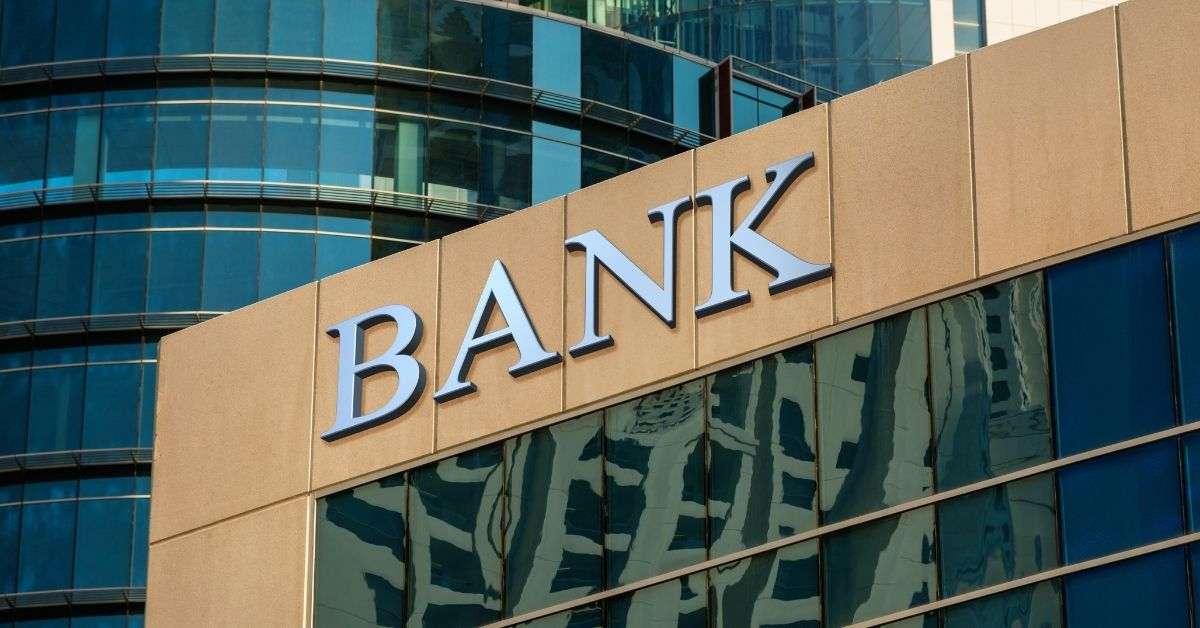There are two types of FMCF products: on the one hand, those that expire quickly, such as fresh products (for example, delicatessen or greengrocers), and other types of products that have a high turnover, so they need continuous mass production or seasonal. For example, Coca Cola or products produced seasonally, such as Ferrero Rocher in winter or ice cream in summer.
One of the significant challenges for FMCGs is logistics since they must be produced and distributed very quickly.
The Fast Moving Consumer Goods (FMCG), an expression that refers to high-turnover consumer goods, or what is the same, to products that have a short useful life; they are a trend that has become global due to the high demand from users for this type of product. FMCG full form is Fast moving consumer goods (FMCG) companies.
Family and individual considerations account for half, health care accounts for 31%, and food and drink account for 19% of the region.
Urban areas account for 55% of government revenue generated by consumer goods companies. In addition, the district sector accounts for 45%, which is developing faster than in urban areas. With the improved dissemination of consumer distribution organizations, there is a growing interest in high-quality products and organizations in the country’s regions.
The Government of India (GOI) has approved 100% FDI for the fund and, together with 51% of FDI, has diverted part of the region to multi-brand retail. Retailers worldwide will have access to the history of usage trends in India.
The Goods and Service Tax (GST), passed in 2017, benefited the consumer goods district. Many consumables such as disinfectants, toothpaste and hair oils currently belong to the 18% classification category at a rate of 23-24% previously.
Over the past decade, the revenue generated by the consumer goods industry in India has shown a growth rate of 21.4%. Revenue changes peaked at $ 31.6 billion to $ 52.8 in consumer goods from 2011 to 2017 to 2018, respectively.
It is estimated that the FMCG industry in India will grow by 27.9% annually, reaching US$ 103.7 billion in 2020. It is accepted to reach around $ 100 billion by 2023 and $ 220 billion by 2025. The rural revenue share is about 45%, and the urban area has 55% of total FMCG industrial revenue. According to current statistics, 65% of Indians live in rural areas and spend about 50% on consumer goods. By 2025, there will be approximately 850 million people buying products online in India.
List of top Indian FMCG Companies
Below is the list of top FMCG companies in India.
1. Hindustan Unilever
Hindustan Unilever Limited is India’s oldest and largest FMCG company, all listed on this company’s brand, from Vaseline, Dove, Bru Coffee and Lux Soap to Pureit. HUL has many categories among these 20 categories, including fabric washing, home care, scrubbing, personal washing, haircare, skincare, colour cosmetics, oral care, deodorant, beverages, ice cream, and frozen desserts, foods, etc. It is among the top 10 fmcg company in india.
HUL was founded in 1931, namely Hindustan Vanaspati Manufacturing Co., Ltd. But in year 2020, HUL decided to remove the Fair & Lovely with Glowly & Lovely brand. This happened after a lot of criticism from them.
2. ITC Limited
At present, the company is known as ITC Limited because “ITC” does not have the complete form of this abbreviation. In 2010, ITC concluded its century in this industry and incorporation.
The company has a business with food, personal care, tobacco, cigars, branded goods, educational products, stationery and safety plates. In addition to grocery items, the group is actively involved in hospitality, paper, packaging, agriculture and the IT sector.
3. Amul
Amul is an Indian dairy cooperative based in Gujarat. The Milk Consortium operates in 13,000 villages in Gujarat. The Amul Foundation played an essential role in the White Revolution in India.
The brand trades mainly in milk and dairy products such as fresh milk, spreads, pans, yoghurt, cheese and milk powder. We also sell chocolate and beverages. The company has an expansive distribution network with 50 sales offices, 5,000 wholesalers, and 700,000 retailers. Amul can make a name for itself when it comes to dairy products.
4. Parle Agro
Parle Agro Private Limited is an Indian corporation that owns Appy, LMN, Frooti, Hippo and other Bailley brands by its name. The Chauhan family founded the company in Vile Parle, Mumbai. However, the original Parle Company was later divided into three producing products with different titles. Parle Products is led by Sharad, Vijay and Raj Chauhan. Ramesh Chauhan leads Bisleri.
The family continued to use the brand name “Parle” despite the differences.
5. Britannia Industries Limited
Britannia Industries Limited is an Indian corporation that deals in food and beverage products. The company has its headquartered in Kolkata, India. Established in 1892, it is the oldest existing company in India. Britannia now belongs to the Wadia group, led by Nusli Wadia.
Britannia Industries Limited is famous for its biscuit products. The corporation trades biscuits, bread and dairy products all through the country and at the international level. The company export its products to more than 60 countries worldwide.
Britannia offers a wide range of biscuits, bread, cakes, biscuits and dairy products. More than 50% of the product range is filled with many nutrients. That is why we are a company that promotes healthy nutrition, where the slogan says “Eat healthy, better ideas” or “Swasth Khao, Tanman Jago”.
6. Dabur
It is considered one of India’s most oversized fast-moving consumer goods (FMCG) companies. Dabur industry derives just about 60% of its income from the customer care business, 11% of its income from the food trade and the rest from the worldwide Business Unit.
In 2003, Dabur split its pharmaceutical business and separated it from another company known as Dabur Pharma Ltd. Dabur offers products such as hair care, dental care and skin care. In addition to India, Dabur has a significant presence in the international market, particularly in the Middle East, SAARC countries, Africa, the United States, Europe and Russia.
7. Marico Limited
Established in 1990 in Mumbai, Marico is one of the leading FMCG companies in India manufacturing FMCG products such as skincare products, edible oils, hair care, fabric care, men’s care and health food. Marico operates in more than 25 countries in Asia and Africa. Marico Limited introduces its “Make a Difference” motto by using innovative technology to produce high-quality products.
8. Godrej Consumer Products Ltd.
In 1918, they launched the world’s first soap with vegetable oil called Chabi. Their series, Godrej No. 1, has been approved by many Freedom Fighters, including:
Rabindranath Tagore, Annie Besant, C. Rajago Parachari. Even today, it is one of the biggest soap brands in India.
Wet wipes and disinfectants in the Indonesian market expand India’s current soap manufacturing base. Africa, Latin America and the United States have entered these markets with plans to build a complete portfolio of multiple products.
9. Tata Consumer Products
Tata Consumer Products is an FMCG company headquartered in Mumbai, Maharashtra and a wholly-owned subsidiary of Tata Group. With Tata Global Beverages Ltd. the company functions in the food and beverage industry, where 56% of its revenue comes from India and the rest from the global market.
The coffee bar has been rated as “Starbucks Coffee Tata Alliance”. Sauce Coffee Beans is from Tata Coffee, a Tata Consumer Products Limited subsidiary. As of 2020, the company’s revenue was chlorine 5807.99 (US $ 810 million), while the total net revenue stream was chlorine 575.35 (the US $ 81 million).
10. Emami
The company has seven production units in India and one abroad. The company deals with the areas of personal care and health care. Boroplus is their most popular product and preservative cream. Other commonly used derivatives include Navratna oil, Boroplus antiseptic cream, Fair and handsome, Navratna Cool Talk, Sona Chandi Chiawanprash, Zandu Palm and Himani Fast Relief.
So aboveMentioned are the Leading FMCG Companies in India for your reference.
Factors leading to the expansion rate of the FMCG industry in India:
Below are few factors which enforce the growth of indian fmcg companies:
- To increase the number of working women
- Increase disposable income and increase consumption per. inhabitant
- Increase customers’ purchasing power
- Raise awareness about online shopping
- Increase brand awareness and awareness
- The constant change in consumer tastes
- Changes in banking policies and government regulations
- Increased interest from foreign investors
Characteristics that increase the demands of FNCG companies in India
. Technology
Since the inception of the internet, individuals have tended to work and search online rather than in context. They search for this online and buy it offline (ROPO). As a result of the growth of the Internet, FMCG has installed several unique production machines for better quality, thus lowering its profit margin to match that of its competitors.
. Marketing drive and research
In India, the priority is to get the best deals, which is the usual way people think of getting people to switch between different brands. This is the only reason why FMCG companies try to offer various combinations to influence entice and attract customers in every promotional transaction.
. Low capital intensity
Companies that invest in consumer goods need less capital to invest in production facilities, machinery, equipment and other fixed assets. This gives a total turnover of 5-8 times the invested capital in a fully upgraded plant. Businesses tend to be less capital intensive because business transactions are still on a credit and cash basis.
. High initial launch cost
Many large companies dominate the American consumer goods industry, but the industry is very fragmented here in India. Increasing the company’s market share makes it more difficult because it increases the number of competitors. The promotions, advertising, product development costs, market compatibility testing, market research and product launches needed to promote require a significant investment.
. Natural Products Trend.
Today, the market’s premium segment is shifting to natural products and natural products made from natural ingredients.
Efficiency in the logistics operation of FMCG companies
The storage within the supply chains in top fmcg companies in india is not limited only to protecting materials for their transformation. It involves daily inventory control monitoring, data management, a measurement of operational capacity in warehouses, and excellent product traceability to the customer at the time of shipment.
The logistics operations must go hand in hand with customer requirements, thus must be seen as key elements of information systems, personnel for the execution, and necessary training. Customers see the results realized when the sales order is delivered with the requested product, at the required time and with the agreed price.
The logistics areas of the FMCG are always looking to achieve these goals. Within the operations, the administrative areas and the business leaders of the FMCG have a transcendental role in achieving perfect orders. The current trend of companies is to worry more about covering the required profiles within the companies, which is why they hire the best three and 4PL’s to be able to leave complete control of the supply chain.
Those who work in logistics know that it is a “high impact service” if it is not done well, it significantly affects the clients’ results.
It is essential that, given the new opportunities offered by the FMCG, the sequence of its processes within the supply chain is reviewed periodically. When an error is detected, it is documented, looking for the root cause to establish an action plan that allows eradicating the fault in the process.
This new challenge is an invitation to get involved creatively in supply chains looking for opportunities that generate more excellent value. The challenges are significant, but the effort invested in the long run will pay off in the long run. In doing so, your supply chain will be a true competitive advantage in the FMCG market.
FMCG Trend and Outlook
COVID-19 had dramatically impacted consumer behaviour in 2020, but what impact will it have in 2021?
- Consumer goods growth is expected to reach 10%. In the first quarter, the sector registered an increase of 9.4%.
- According to reports, the e-commerce customer goods market share is predicted to reach 12%. This equates to two years of market share growth in one year. Big gains are also seen in Latin America, but the overall market share is still less than 1%.
- Growth in the physical condition and beauty sector has been very slow for the duration of the covid period.
- All consumer goods industries benefited from the quarantine, except for health and beauty. The beauty industry is predictable to see a rebound into the new normal.
- Established consumer goods need to rewrite their marketing strategies and adapt their business models for the future. This new business model is unsurprising to make unique aggressive benefits in the digital space. To do this, they necessitate to find out the data.
- In an era of unprecedented change, successful FMCGs also need agile customer-centric leadership.
- The contribution of digital channels to FMCGs is estimated to be 10% over the next decade. But now it can be done in three or four years.
The contribution of e-commerce to the FMCG
E-commerce has democratized placement on store shelves. Brands no longer depend on vendors to sell to customers. As a result, many new brands are launching their businesses online to reach consumers directly.
And it is that e-commerce does not limit the number of products that companies can present digitally to consumers. Additionally, the relationship between top fmcg companies in india and retailers is no longer a competitive barrier for many newcomers.
The new challenges for companies in the FMCG sector
New challenges for FMCG companies include engaging in supply chains creatively. For this, it is convenient to review the processes regularly and reduce the faults found in them.
Such regular review of processes can be complex, but it pays off in the long run as it ensures a competitive advantage over other leading companies in the FMCG industry. This is why it is significant to build up a marketing plan. In addition, with the rise of technologies, there is a new consumer dynamic that can drive the development of personalized services through electronic commerce.
Conclusion
India is a developing country, and living standards are rising steadily. Consumer goods play an essential role in the country’s growth and development.
We have identified the reasons for buying the best consumables. These companies are the largest FMCG industry due to high production standards, product quality, packaging, and continuous innovation. Thanks to their premium products and a history of satisfying customers and families, these top-notch products have successfully opened their niche in highly competitive areas.
Read More: Best Garner




